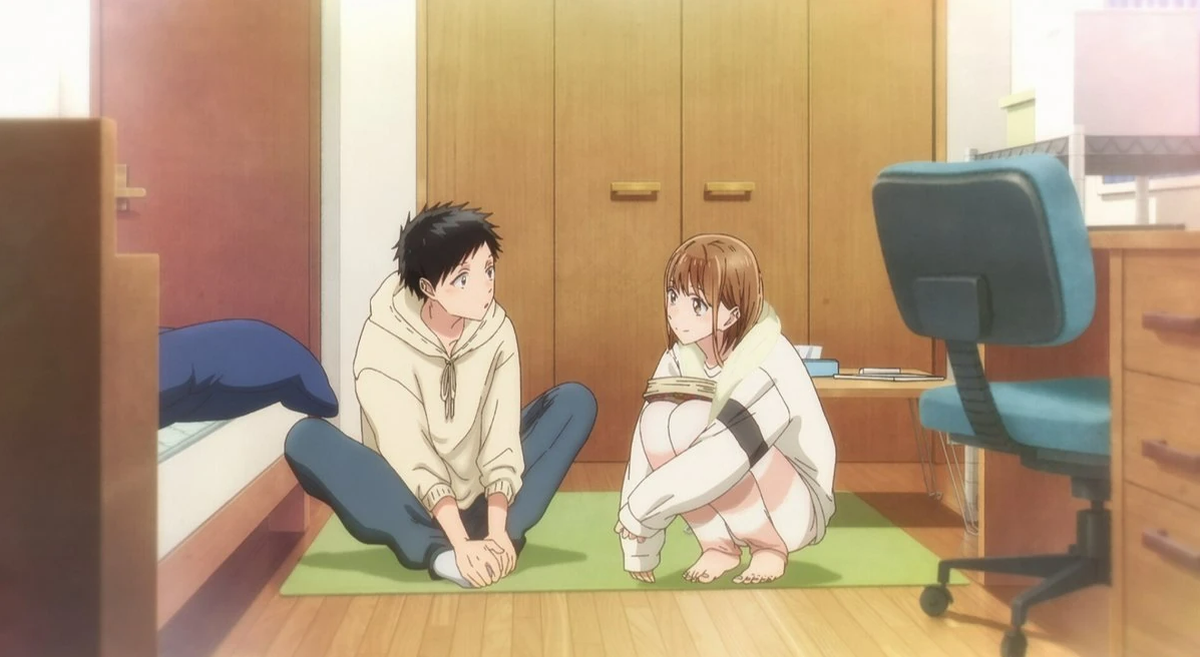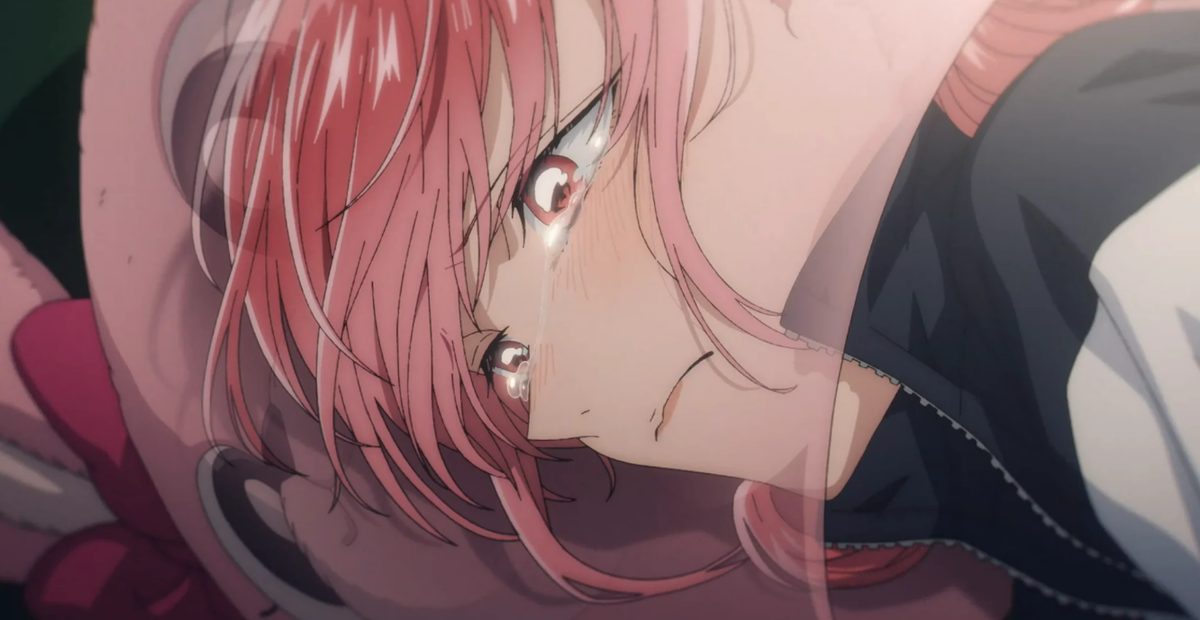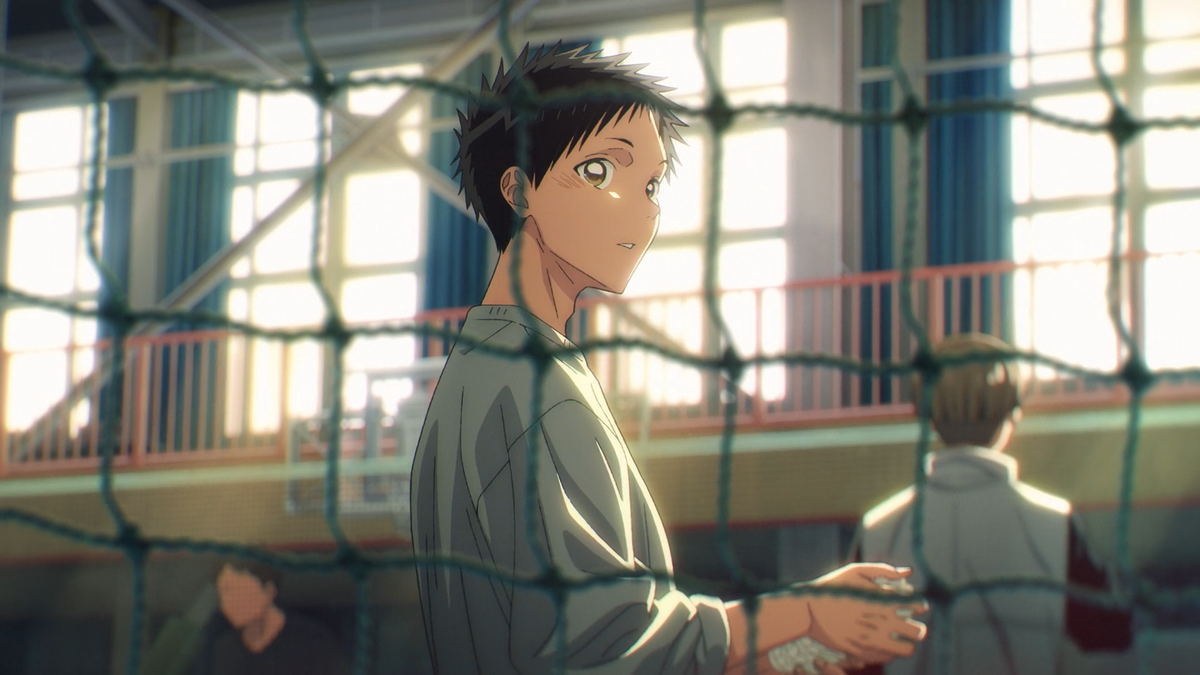A still from ‘Blue Box’
| Photo Credit: Netflix
By some curious alchemy of gentle emotions and effortless storytelling, Blue Box has become the kind of anime that makes you nostalgic for a high school experience you probably never had. It’s a sports anime without the overwhelming bravado, a romance anime without the melodramatic excess. But at its core, it contains something truly rare: a love triangle where everyone is so thoughtful, so painfully considerate, that you almost wish they could all just be happy together. Almost.

A popular adage in the otaku community is that love triangles tend to be more like emotional hostage situations. One party is usually scheming, another is painfully oblivious, and the third — almost always the “loser” — is the emotional punching bag that the story flings into heartbreak for the sake of tension. Blue Box, however, takes this familiar structure and thoughtfuly reshapes it into something more bittersweet, more lived-in, and perhaps more mature than the genre typically allows.
Blue Box (Japanese)
Director: Yūichirō Yano
Cast: Reina Ueda, Akari Kitō, Shōya Chiba, Chiaki Kobayashi, Yuma Uchida
Episodes: 25
Runtime: 25 minutes
Storyline: Badminton player Taiki has always admired basketball star Chinatsu from afar. But one day, a surprising turn brings them unexpectedly close.
Adapted from Kouji Miura’s manga and brought to Netflix by Telecom Animation Film, Blue Box is set in a high school and follows the story of badminton player Taiki Inomata and his long-standing crush on Chinatsu Kano, a basketball star whose detached charm makes her the idealised ‘senpai’ of his dreams. In a well-worn setup, a light, non-contrived twist of fate leads Chinatsu to move in with Taiki’s family, offering the potential for closer bonds but also the reality of constant proximity without true intimacy.

A still from ‘Blue Box’
| Photo Credit:
Netflix
But love triangles are only as good as their third wheel, and Blue Box delivers in the form of Hina Chono. A childhood friend of Taiki and a gymnast with Olympic-tier perseverance, Hina might have easily been written as the jealous, meddling interloper. Instead, she’s one of the most deeply realised characters in the show, balancing playful teasing with an unspoken ache that only grows as the story progresses. She knows Taiki’s heart belongs to Chinatsu, but that doesn’t stop her from falling for him anyway. And, crucially, she doesn’t let it make her cruel.
If Blue Box followed the conventions of most romance anime, Hina would be either a conniving antagonist or a martyr-in-the-making. Here, Miura grants her agency without vilifying her desires. She confesses her feelings, accepts Taiki’s initial hesitancy, and still manages to retain her dignity even in the face of inevitable heartbreak.

The series thrives on its restraint. Instead of grand confessions shouted in the rain, it gives us subtle furtive glances across the gymnasium, a brush of hands that lingers just a second too long, and moments that feel like they exist on the precipice of something more. It’s not that the characters don’t have feelings (they have them in Chibi-fied abundance throughout the season) but rather that they are so keenly aware of each other’s emotions that they hesitate to act in ways that might cause harm. The resulting tension simmers, and simmers and simmers some more, making every near-touch and uncertain smile feel weightier than the most dramatic declarations of love.

A still from ‘Blue Box’
| Photo Credit:
Netflix
Visually, Blue Box is a feast for the senses. Telecom Animation Film has imbued the series with a kind of soft, golden-hour glow that makes even a stray gust of wind or the glint of sweat on a forehead feel cinematic. The animation does something particularly impressive: it makes sports feel as emotionally charged as romance, and romance feel as breathlessly intense as sports. Whether it’s a badminton match or an awkward exchange outside a locker room, everything is imbued with an urgency and purpose. And Takashi Ohmama’s evocative score wistfuly drifts through Blue Box like a summer breeze, perfectly attuned to every unspoken sweet nothing.
But perhaps the most remarkable thing about Blue Box is how sensitively it handled heartbreak. In its penultimate episode, the series presents rejection as something that comes neither from cruelty or indifference, but from the simple, devastating fact that sometimes, love just isn’t mutual. The show does well not to milk the moment, but lingers in its aftermath, letting the crushing weight of emotions settle. The emotional climax comes as a gutting moment of pure sincerity, and one of the best-handled love triangle resolutions I’ve had the (agonising) pleasure of bawling my eyes out to.

If there’s a complaint to be made, it’s that Blue Box is almost too gentle. There are moments when you want to grab these characters by the shoulders and tell them to do something already. The slow, tender build-up may be lovely, but after 25 episodes, one does start to wonder if we might ever get more than just knowing glances and half-formed words. A held hand, perhaps? A whispered “I like you” that isn’t half-swallowed in hesitation? Maybe that’s a demand for Season 2. For now, though, Blue Box stands as a rare kind of romance that captures all the aching uncertainty of young love without needing to manufacture cheap conflict.
Blue Box is currently streaming on Netflix
Published – April 01, 2025 04:37 pm IST
